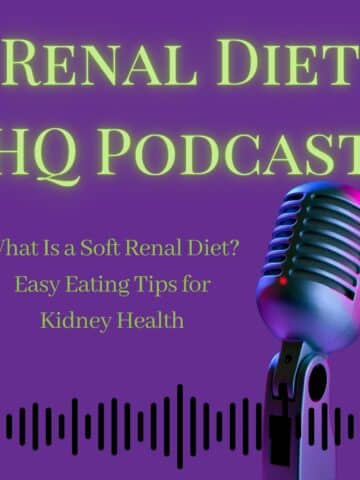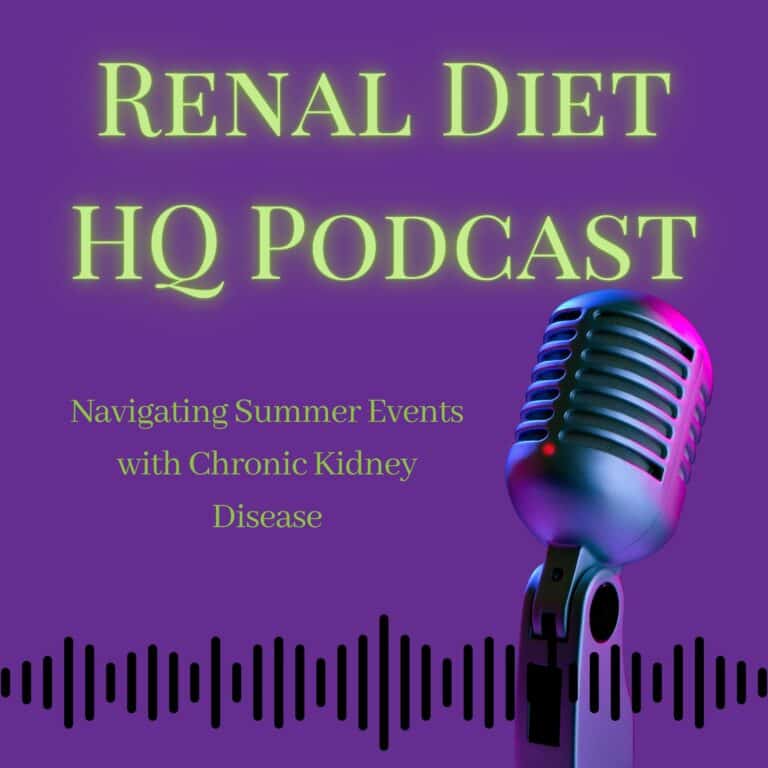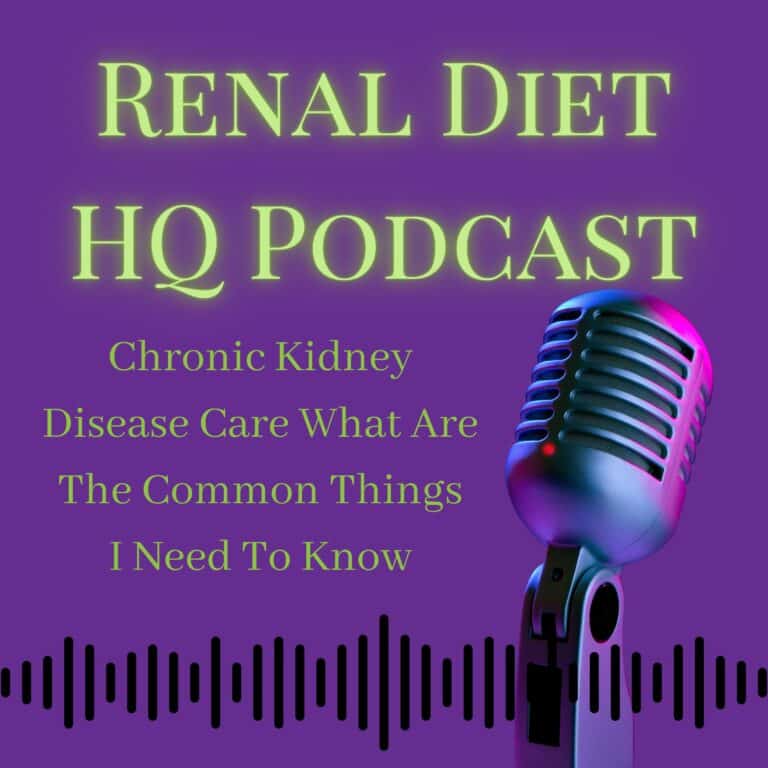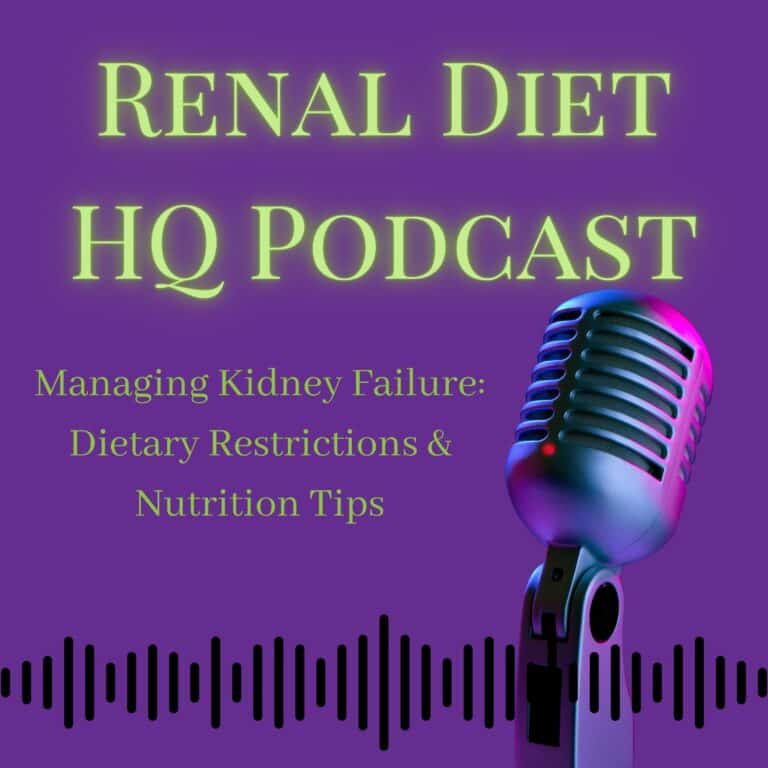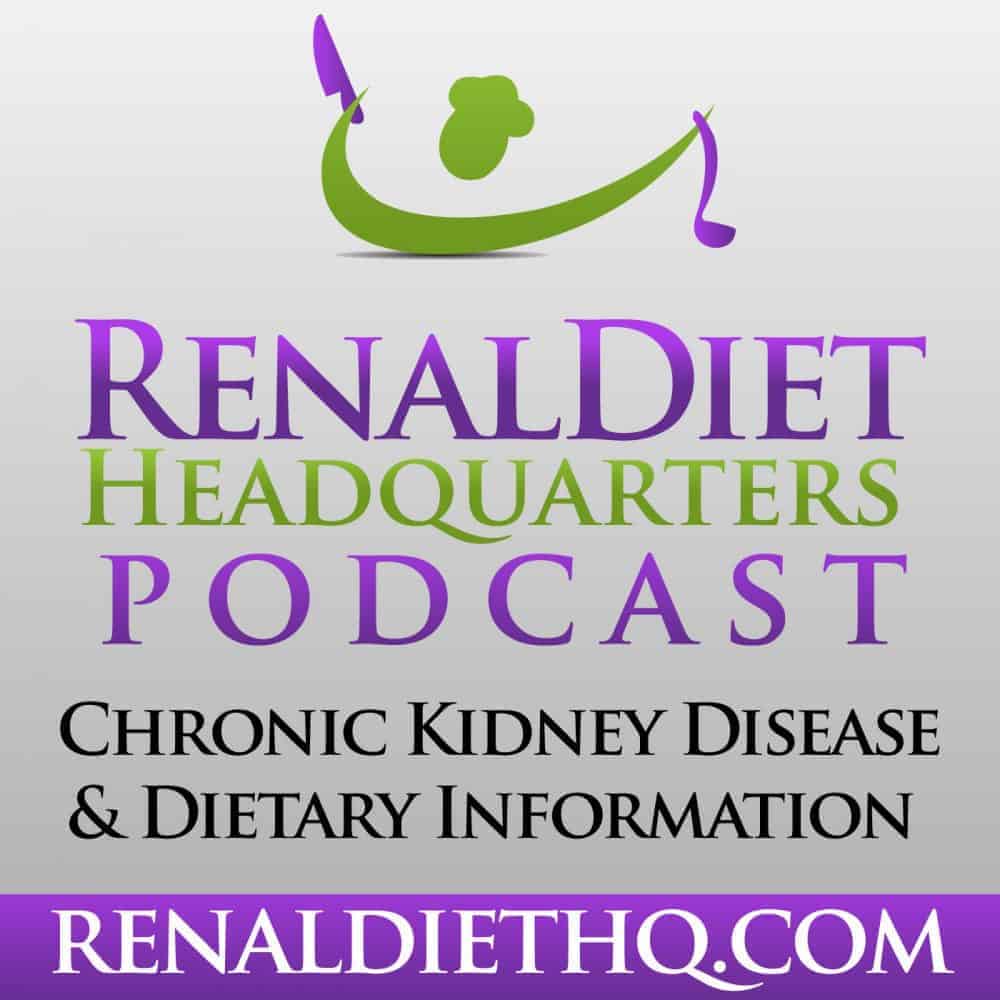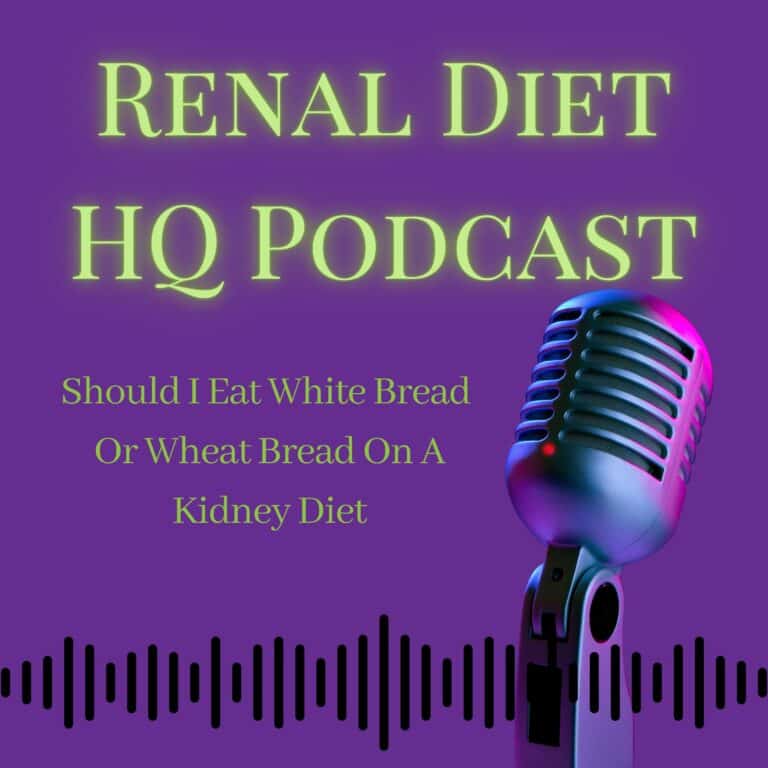6 Essential Lifestyle Habits To Prevent Foodborne Illness with CKD- Podcast
Podcast: Play in new window | Download
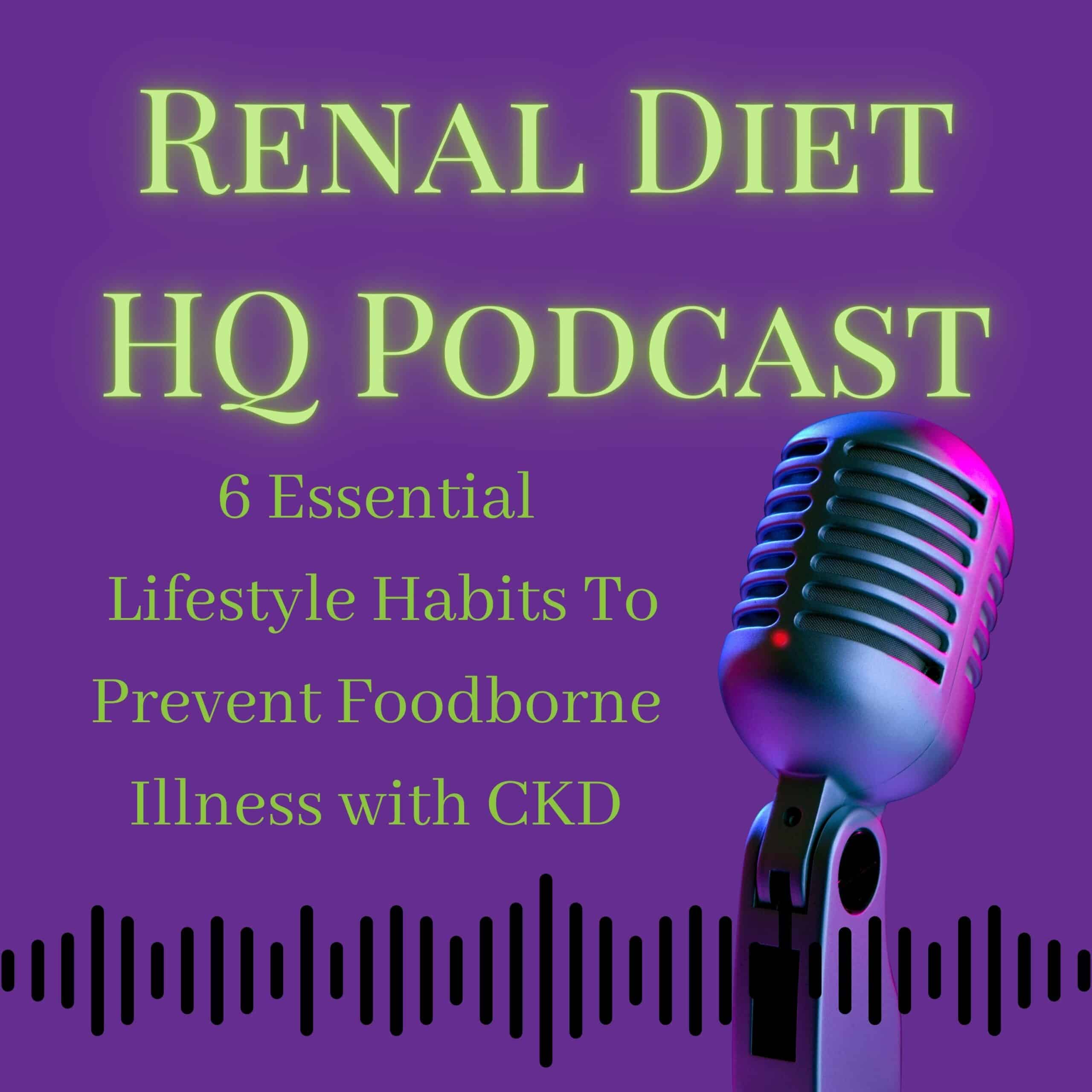
Living a healthy lifestyle is crucial for individuals with kidney disease. In this podcast, we'll explore six essential habits that can significantly reduce the risk of foodborne illnesses, safeguarding the health of those with compromised kidney function.
For More Recipes and Ideas --->> Get Your Free Meals and Recipes That Are Perfect for Pre-Dialysis Diets, Pre-Dialysis with Diabetes, or Dialysis Diets.
Prioritize Personal Hygiene
Maintaining personal hygiene is the first line of defense against foodborne illnesses. Regularly washing hands with soap and water, especially before and after handling foods like chicken that may contain harmful bacteria such as salmonella, is vital. Additionally, keeping personal spaces clean, including regular disinfection of kitchen surfaces and appliances, further reduces the risk of contamination.
Safe Food Consumption
Safe food consumption is paramount for individuals with kidney disease. Avoiding raw or undercooked foods, particularly meats, eggs, and unpasteurized dairy, is crucial. Staying informed about food recalls and outbreaks in the region empowers individuals to make informed choices and minimize potential risks.
Ensure Safe Water Intake
Ensuring safe water intake is essential, especially in areas with questionable water quality. Drinking purified or boiled water can significantly reduce the risk of waterborne illnesses. For added protection, consider using certified water filters at home to ensure the water meets the necessary safety standards.
Practice Safe Dining Out
When dining out, it's important to make safe choices. Opt for reputable restaurants and inquire about their food preparation methods. Avoid dishes that may contain raw or undercooked ingredients, as these can pose a potential threat to individuals with kidney disease.
Stay Updated on Your Health
Regular health checkups are crucial for monitoring kidney function and overall well-being. Keeping up with recommended vaccinations, especially those protecting against foodborne pathogens, adds an extra layer of defense. Staying proactive about health empowers individuals to make informed decisions about their lifestyle.
Limit Exposure to Potential Contaminants
Limiting exposure to potential contaminants is a key aspect of disease prevention. Avoiding travel to high-risk areas known for poor food and water safety reduces the likelihood of exposure to harmful pathogens. Similarly, during flu season or outbreaks, minimizing exposure to large crowds can significantly lower the risk of catching infections.
These six essential lifestyle habits offer a comprehensive approach to preventing foodborne illnesses in individuals with kidney disease. By prioritizing personal hygiene, practicing safe food consumption, ensuring safe water intake, making informed dining choices, staying updated on health, and limiting exposure to potential contaminants, individuals can take significant steps towards safeguarding their well-being.
Learn more about Cooking and Adjusting Recipes For CKD The What, How and Why's of Doing It- Podcast
Learn more about Beyond the Diagnosis The Emotional Costs of CKD- Podcast




